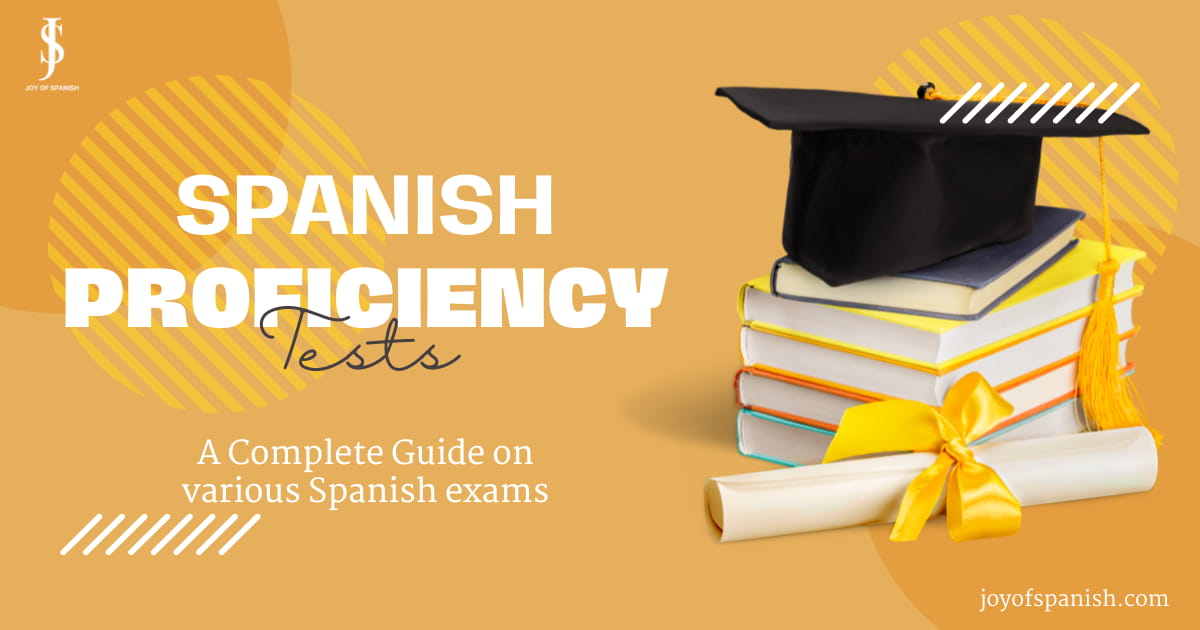Did you complete the first step of regular Spanish AR, ER, and IR verbs? Or you may still need help with the complex subjunctive and proverbs.
It cannot be easy to pinpoint exactly where you are on your Spanish language road on this magical journey.
Luckily, Spanish language proficiency examinations can be the milestone you’re looking for.
Why should you pick an official Spanish exam? Where, when can you take it, and how do you choose which is the perfect match? DELE, SIELE, ECL, CELA, ELA, DIE, TELC, CELU, or another test?
Feeling confused? Don’t worry about it!
I’ve done all the research, saving you the trouble and time. This ultimate guide is your go-to source for all things related to Spanish language tests.
Table of Contents
What is a Spanish proficiency exam?
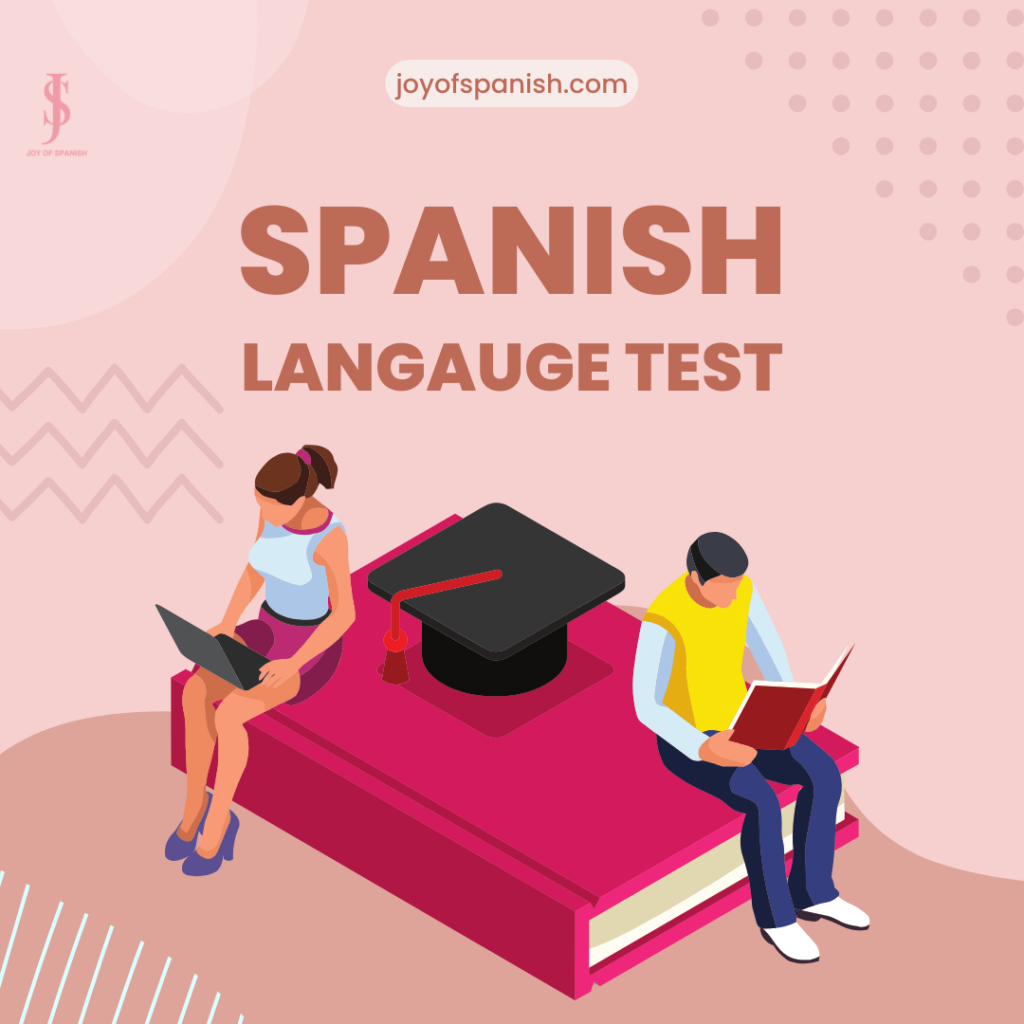
The Spanish competency exam evaluates your ability to communicate in Spanish in real-life situations. It covers various settings, topics, and contexts and how to use and apply them in daily conversations.
Typically, the exam measures four fundamental language skills: speaking, writing, reading, and listening. Some tests may only evaluate a few of these skills.
Most Spanish exams are international standardized tests. They developed them to check candidate’s non-native Spanish language skills.
Many organizations conduct these exams following the CEFR guidelines related to the Common European Framework of Reference for Languages. Still, some have their own policies and systems in place.
Should you take a Spanish ability test?
There are many notable benefits of language tests. Taking one of these exams makes sense.
First, a Spanish proficiency test can prove your language knowledge. Passing one such test can also boost your confidence. It also develops your personality professionally and socially.
Business organizations, educational institutions, and government bodies highly value Spanish language certifications. They provide worthwhile insight into candidates’ language skills and personalities.
By taking a Spanish test, job seekers can enhance their academic qualifications and improve their chances of securing positions requiring Spanish ability.
Adding your Spanish test certification to other required documents can help smooth the interview process and impress potential employers.
This can be helpful for both employees and companies. It opens up a world of job options and supports career growth.
Further, many universities worldwide need Spanish proficiency tests for undergraduate, graduate, and doctoral programs.
Last, it helps with your PR application, work permit, visa, or travel overseas. And, of course, it confirms your Spanish language mastery.
Overall, the prospects of the Spanish exams offer many possibilities. Spanish has a promising future.
Top 7 Popular Spanish Language Examinations in 2025
There are multiple exams for the Spanish language worldwide. I only consider those that are established, relatively easily accessible, globally accepted, and valuable.
You can assess your Spanish proficiency with these language exams. Depending on your current expertness level, you can select one from beginner, intermediate, or advanced.
Each is recognized globally. You may select an exam and gain a certificate or diploma for personal or professional purposes.
The Spanish proficiency tests listed here are widely accepted and have recognized certifications.

1. DELE (Diplomas de Español Como Lengua Extranjera)
The DELE is an acronym for the Diploma of Spanish as a Foreign Language.
This is the most famous Spanish language test. The trust and acceptance of DELE extends to almost all businesses, governments, and academic institutions.
The Spanish Ministry of Education & Science has allowed Instituto Cervantes to manage the test worldwide. Anyone whose mother tongue is not Spanish can take the DELE to know their Spanish competence.
The test is in line with the CEFR benchmarks. DELE offers six levels to choose from — A1, A2, B1, B2, C1, and C2. It also has a version for young learners aged 11 to 17, with just two levels, A1 and A2/B1.
Like many other exams, DELE measures your writing, speaking, listening, and reading comprehension. Once you pass the test, you receive a diploma with lifetime validity.
Instituto Cervantes and its network organize DELE tests in over 1,000 testing centers across 100 countries. They conduct the test 6-8 times annually, but not all dates are available at every center.
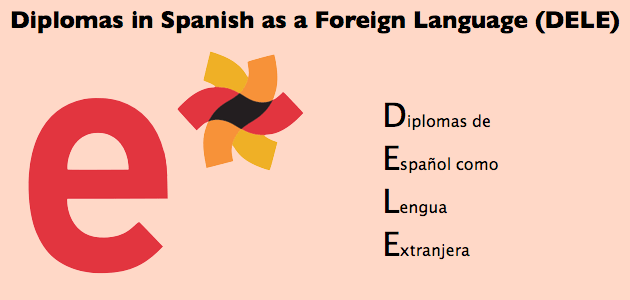
To sum up, adding a DELE diploma to your resume can give you a competitive edge.
2. SIELE (Servicio Internacional de Evaluación de la Lengua Española)
The SIELE stands for Servicio Internacional de Evaluación de la Lengua Española. This online test can electronically certify your level of Spanish competency.
Many prestigious institutions support SIELE, including the Cervantes Institute, the University of Salamanca, the Autonomous National University of Mexico, and the University of Buenos Aires.
This exam is comprehensive and includes a range of levels. Your Spanish proficiency level score is based on a 1000-point scale comparable to the CEFR.
SIELE has four tests. This includes interaction, reading and listening comprehension, written expression, and spoken communication. You can take one or all four tests through SIELE Global.
What sets SIELE apart from other language tests is that you can choose the time and date that works best for you. This examination is also more flexible, and you have more test centers.
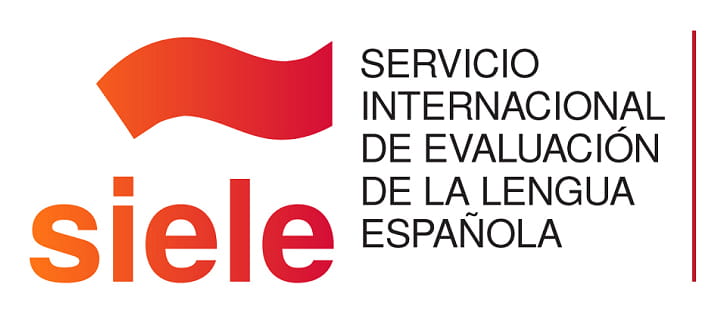
An official Spanish diploma like SIELE offers chances for higher education in Spanish-speaking nations and a competitive advantage in the job market.
It is a valuable addition to your CV. However, SIELE certification is only valid for five years, which may be a drawback for some test-takers.
3. DIE (Diploma Internacional de Español)
If you’re looking for a highly regarded Spanish language test, consider the DIE (Diploma Internacional de Español). It has ten levels of competence, ranging from beginner to advanced.
FIDESCU, the Foundation for the Development and Research of Spanish Culture, conducts DIE. It is a non-profit organization under the purview of the Spanish government’s Ministry of Education.
Individuals who are non-native Spanish speakers and are at least seven years old are eligible to take the Spanish DIE test. It checks both oral communication and writing skills. Candidates can opt to take one or both of the tests.
The DIE writing exam comprises six levels, while the oral exam has ten levels, ranging from basic to mastery.
There are also three specialized exams available.
This includes Business Spanish (levels B2, C1 & C2), Medical Spanish (levels B2 & C1) and Spanish for Tourism (levels B2 & C1). The specialized exams do not include levels A1, A2, and B1.
The DIE test carries 100 points, with a minimum score of 65% required to get a diploma.
You can take the test online or in person at over 50 exam centers in 24 nations across five continents. Further, the DIE score and certification, like the DELE exam, are valid for life.
Each center has its own fee structure, dates, and registration process. Interested individuals can contact their preferred centers for the required information.
4. CELU (El Certificado de Español: Lengua y Uso)
The CELU (Certificate of Spanish Language and Use) is an official exam that evaluates proficiency in Rioplatense Spanish. Argentina’s Ministry of Education and Ministry of Foreign Affairs recognize the test.
Candidates who are not native Spanish speakers and are 16 years old or older can take the exam. One needs a valid ID card or passport.
CELU is less well-known than DELE and focuses on a specific type of Spanish. Still, many institutions in Spanish-speaking South America, Brazil, China, and Italy accept and recognize it.
CELU evaluates students’ reading, writing, and speaking skills in real-life contexts. It has two parts.
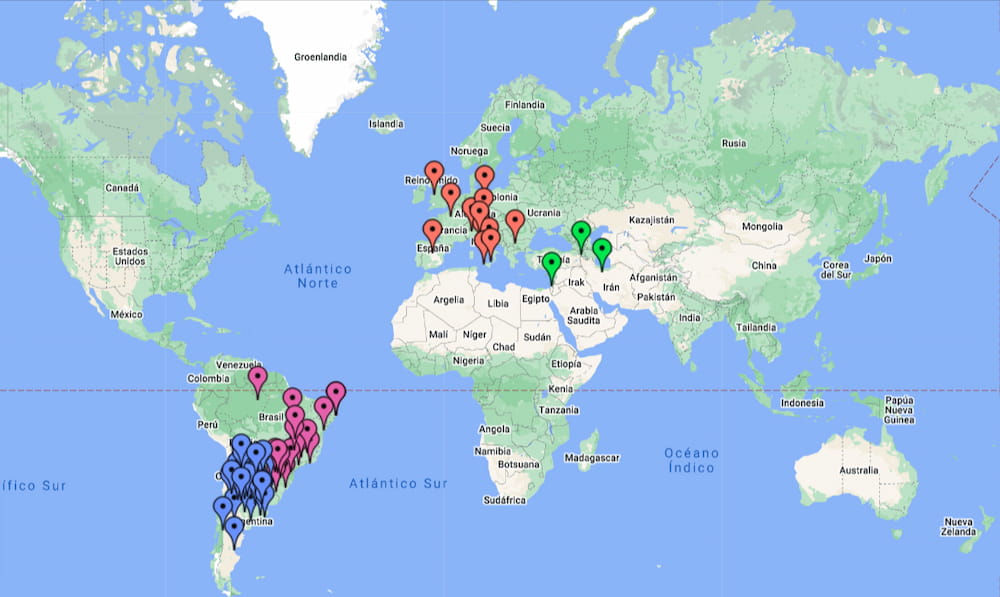
The first is a three-hour exam that covers listening to oral texts, reading, and writing texts. The second part is a 15-20-minute reading of brief texts followed by a discussion.
Candidates can achieve one of three levels based on their performance: Basic, Intermediate (B2), or Advanced (C1). Only the latter two levels are certified.
Test takers can access their results online two months after the exam date. The certificate is valid for life and has no expiration date.
They administrate CELU twice a year, in June and November, at all universities in the ELSE association. The testing centers are available in many nations, like Argentina, Brazil, Germany, France, the UK, and Russia.
5. TELC (The European Language Certificate)
TELC is a language proficiency exam recognized globally. This includes Spanish and nine other languages. Telc certification can boost your career prospects, irrespective of the reasons to study Spanish.
Keep in mind that TELC Spanish doesn’t include all CEFR levels. You can opt for either Escuela – School (A1, A2, A2-B1, B1, B2), A1 Junior, or Standard Español (A1, A2, B1, B2).
The exam comprises two sections — written (reading, writing, and listening) and oral (speaking).
The questions cover a wide range of subjects, such as situational responses, formal letters, subjective topics, reading, grammar MCQs, vocabulary, and listening comprehension.
TELC is graded out of 300 points, with 225 for the written and 75 for the oral. To pass the exam, you must score at least 60% in both written and verbal. For instance, a minimum of 35 in writing and 45 points in speaking.
TELC exams are available in thousands of centers across 25 countries. However, most European testing centers offer them year-round, and each institution sets its dates.
The cost of the exam depends on the test type, level, and location. Like other Spanish proficiency exams, TELC is valid for life and never expires.
6. CELA (Certificación Del Español Como Lengua Adicional)
The CELA (Certificate of Spanish as an Additional Language) is a test for those who wish to show their proficiency in Spanish. CEPE manages the test for the National Autonomous University of Mexico (UNAM).
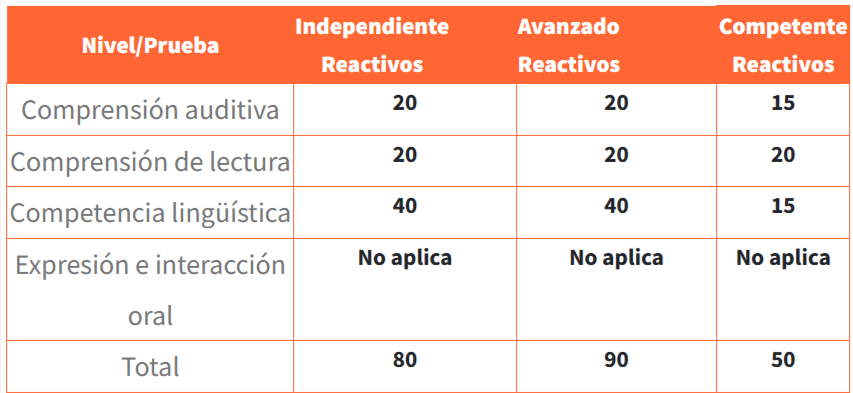
CELA assesses the candidate’s ability to communicate effectively in academic, personal, and professional settings.
The exam is based on the CEFRL model and certifies three levels — Independent (B1), Advanced (B2), and Proficient (C1).
The CELA comprises five tests that assess all four language skills. This includes reading and listening comprehension, writing, listening, and oral expression.
You can take the exam if you are over 18 years old and are a non-native speaker.
You can take the CELA online using a computer with headphones, a webcam, and a microphone. Or you can take it in person at an approved test center.
The official website has all the information, like dates, format, testing centers, exam structure, and registration fees.
7. ECL (European Consortium for Modern Languages)
The ECL, the European Consortium for the Certificate of Attainment in Modern Languages, is a Spanish test open to anyone 14 or older.
Besides Spanish, the exam also offers 14 other European languages.
ECL has four levels — A2 (Beginner – Waystage), B1 (Elementary – Threshold), B2 (Intermediate – Vantage), and C1 (Advanced – Effective Operational Proficiency). It adheres to CERF.
ECL comprises four tests: reading and listening comprehension, writing, and oral communication. Interviewers assess formal accuracy, word power, flow and style, and communicative efficacy during the speaking test.
You can decide between taking the exam on paper or online. You must register online at least three weeks before the application deadline.
The ECL Spanish examinations are held 2-3 times yearly at over 200 centers in 44 countries. The cost of the exam varies depending on the center you choose to sign up for.
How do you select the right Spanish language test?

When choosing a Spanish language proficiency test, consider your goals, needs, availability, and budget. With so many options available, you will find one that suits you best.
The DELE exam is widely recognized for those seeking job opportunities in Spanish. It also has lifetime validity. If you wish to check your Spanish as a hobby, many less standard tests are reasonably priced.
If you’re unsure of your Spanish level, the SIELE exam is a superb single multilevel test. Both SIELE and DELE are valuable.
Remember that not all exams may be available in your area or on your preferred dates, so plan accordingly.
Suppose you have specific needs, such as speaking Rioplatense Spanish for business. In that case, you can take the CELU exam to review your Argentinian Spanish. But this exam may not be offered in your area.
Before deciding, consider each exam’s levels, types of tests, variants, cost, and popularity. Some exams may be expensive, while affordable options may not be globally accepted.
It’s also necessary to consider which abilities the exam focuses on, such as writing or speaking. Modular exams allow you to focus on specific sections, while some may cater to distinct varieties of Spanish.
Before committing to the Spanish test, consider all the details, benefits, and disadvantages. Then, pick the exam that best suits your needs and goals.
Do you have any questions or are uncertain about something? Share your views in the comments below!
